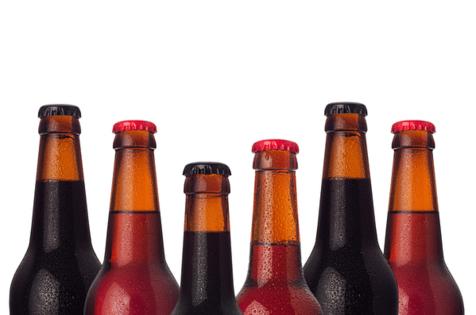On Nutrition: Ways to prevent colorectal cancer
Published in Nutrition
We may joke about the prep involved for a colonoscopy (an exam for abnormal changes in the large intestine). But cancers of the colon or rectum are no laughing matter. In fact, when you combine the cancer death rates of men and women, colorectal cancer is now the second deadliest cancer in the United States, according to the American Cancer Society.
Yet this disease is highly preventable, especially when we routinely submit to the screening procedure (which has proven to be much more comfortable than it once was, thank you). Experts say the chances for survival from colorectal cancer are drastically increased if any problems are caught and treated early.
Colorectal cancer is also highly preventable with a few changes in our eating and exercise habits. In 2018, the American Institute for Cancer Research (AICR) published a report that outlined the latest research that links diet, nutrition and physical activity with the development of colorectal cancer.
These recommendations are based on what these experts report as strong and convincing evidence:
Keep your weight as close to a normal weight as possible. Excess body fat is one of the strongest factors that increases one’s risk of colorectal cancer, says the AICR.
Be physically active at least 30 minutes a day or a total of 150 minutes a week. Any type of physical activity, including leisure time, housework or formal exercise, goes a long way to help maintain a healthy weight.
Eat very little, if any, processed meat -- that which is smoked, cured, salted or otherwise preserved. This includes favorites like bacon and sausage. Research has shown that the more of these foods we eat, the greater one’s risk for colorectal cancer.
If you drink alcohol, limit yourself to no more than 2 drinks a day. What’s a “drink”? A 12-ounce can of beer, 5 ounces of wine, or 1.5 ounces of 80-proof distilled spirits. Alcohol use is one of the top three controllable risk factors for cancer, behind smoking and obesity, say these experts.
These recommendations are supported by evidence deemed “probable” but not convincing:
Eat a diet rich in whole grains. While no exact amount is specified, it has been shown that eating these foods may help decrease one’s risk for colorectal cancer. How? They contain dietary fiber and other substances with properties that fight off this type of cancer.
Enjoy dairy foods like milk, cheese and yogurt. Studies show that as the intake of these foods goes up, the incidence of colorectal cancer goes down. Experts attribute this to the calcium and other properties in these foods that appear to protect the gut.
Limit your intake of red meat (defined as beef, pork, lamb and goat) to no more than 18 ounces (6 deck-of-cards size servings) per week. Increased risk for colorectal cancer is seen at higher levels.
And of course, eat lots of fiber containing (plant) foods like vegetables, fruits, legumes and lentils. These foods are rich in nutrients and phytochemicals that help fight off the growth of cancer cells.
What does this look like in daily meal planning? Check out the AICR’s “New American Plate” at www.aicr.org.
©2024 MediaNews Group, Inc. Distributed by Tribune Content Agency, LLC.







Comments